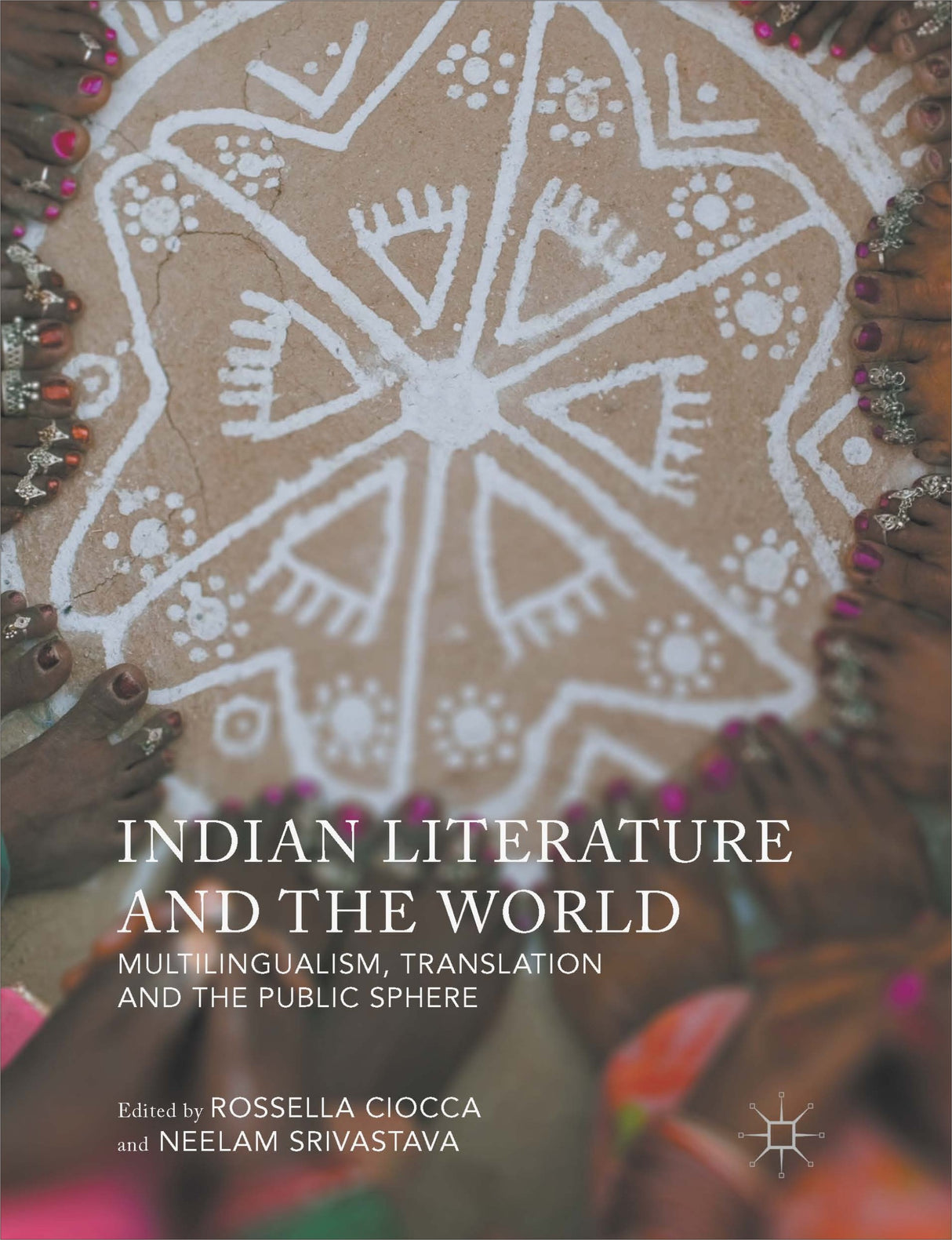INDIAN LITERATURE AND THE WORLD: MULTILINGUALISM, TRANSLATION AND THE PUBLIC SPHERE
INDIAN LITERATURE AND THE WORLD: MULTILINGUALISM, TRANSLATION AND THE PUBLIC SPHERE is backordered and will ship as soon as it is back in stock.
Couldn't load pickup availability
Genuine Products Guarantee
Genuine Products Guarantee
We guarantee 100% genuine products, and if proven otherwise, we will compensate you with 10 times the product's cost.
Delivery and Shipping
Delivery and Shipping
Products are generally ready for dispatch within 1 day and typically reach you in 3 to 5 days.
Book Details
-
Publisher: Rawat Publications
-
Author: Rossella Ciocca, Neelam Srivastava (Editors)
-
Language: English
-
Edition: 2024
-
ISBN: 9781349961016
-
Pages: 294
-
Cover: Hardback
-
Release Date: 2024
-
Sale Territory: India Only
About the Book
This book explores one of the most vibrant yet under-studied aspects of Indian writing today. It delves into the complexities of multilingualism, postcolonial and world literature, the role of translation in shaping the Indian literary canon, and the engagement of Indian authors with the public sphere.
The collection features essays that cover a wide range of topics such as political activism in the North-East Tribal novel, the role of work in contemporary Indian fiction, and the historical reconception through the eyes of the renowned Hindi author Krishna Sobti. The book also explores Bombay fictions, the global reach of Dalit autobiographies, and the intersections of development, ecocriticism, and activism in literature.
Other key themes discussed include casteism and access to literacy in South India, the role of gender and diaspora in literature, and how these elements impact the subcontinent's literary output. By challenging Eurocentric genre distinctions and separating the citizen from the subject, the collection proposes a fresh reading method for Indian texts that moves beyond traditional postcolonial interpretations of "national allegories."
Contents
-
Introduction: Indian Literature and the World
Rossella Ciocca and Neelam Srivastava -
Part I: Comparing Multilingual Perspectives
-
Pre-Nation and Post-Colony: 1947 in My Temples, Too and Midnight’s Children - Rajeswari Sunder Rajan
-
Reading Together: Hindi, Urdu, and English Village Novels - Francesca Orsini
-
Choosing a Tongue, Choosing a Form: Kamala Das’s Bilingual Algorithms - Udaya Kumar
-
-
Part II: Enlarging the World Literary Canon: New Voices and Translation
-
A Multiple Addressivity: Indian Subaltern Autobiographies and the Role of Translation - Neelam Srivastava
-
The Modern Tamil Novel: Changing Identities and Transformations - Lakshmi Holmström
-
The Voices of Krishna Sobti in the Polyphonic Canon of Indian Literature - Stefania Cavaliere
-
-
Part III: Globalized Indian Public Spheres
-
Resisting Slow Violence: Writing, Activism, and Environmentalism - Alessandra Marino
-
The Novel and the North-East: Indigenous Narratives in Indian Literatures - Mara Matta
-
From Nation to World: Bombay/Mumbai Fictions and the Urban Public Sphere - Rossella Ciocca
-
The Individual and the Collective in Contemporary India: Home and Custody by Manju Kapur - Maryam Mirza
-
‘Home is a Place You’ve Never Been to’: A Woman’s Place in the Indian Diasporic Novel - Clelia Clini
-
About the Authors/Editors
Rossella Ciocca is a Professor of English and Anglophone Literatures at the University of Naples “l'Orientale,” Italy. Her research spans early modern literature, colonial and post-colonial history, and literature. She has co-edited several works, including Indiascapes: Images and Words from Globalised India (2008) and is currently working on Out of Hidden India: Adivasi Histories, Stories, Visualities and Performances.
Neelam Srivastava is a Senior Lecturer in Postcolonial Literature at Newcastle University, UK. She has written extensively on contemporary Indian literature, Frantz Fanon, and anti-colonial cinema. She has co-edited The Postcolonial Gramsci (2012) and is working on a book about the cultural history of Italian imperialism and transnational anti-colonial networks.





